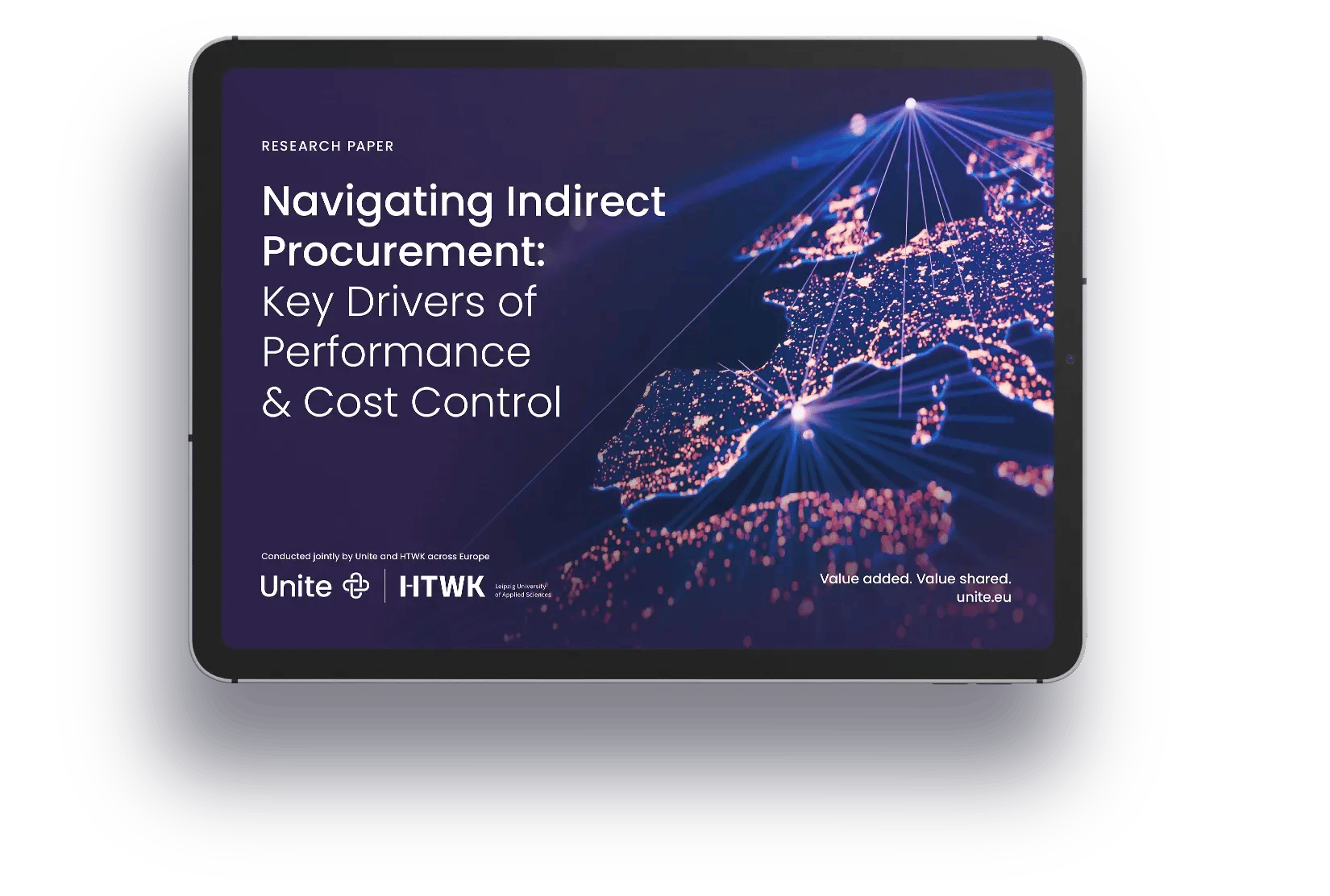The study at a glance

Gain insights from a peer-led study of 181 procurement professionals across Europe, focused on the real-world challenges and opportunities in indirect materials procurement.
Key focus areas include:
- Enhancing the efficiency of procurement processes.
- Leveraging digital tools to embed ESG goals and ensure compliance.
- Using procurement data to increase cost transparency and identify opportunities for automation.
- Adopting emerging technologies like AI, Procurement as a Service (PraaS), and e-marketplaces to boost agility and improve sourcing outcomes.
€27 million
average annual spend on indirect materials procurement20%
average increase in effort due to ESG criteria55%
already use or consider adopting PraaS in futureEurope is revolutionising indirect procurement
Learn how companies navigate cost pressures, sustainability demands and digital challenges
Benchmarking - comparison of European companies of different sizes and sectors
Innovative strength - evolving procurement from legacy systems to agile, sustainable operations
Recommendations for action - the most important drivers for efficient indirect procurement and areas for cost savings
Strategic relevance - data- led insights to emphasise the importance of indirect procurement
The study was conducted by
As the largest university of applied sciences in Saxony, the Leipzig University of Applied Sciences (HTWK) aims to optimally combine teaching, research and practice. More than 6,500 students are enrolled in a wide range of subjects in the fields of engineering, economics, computer science, media, social sciences and culture. The HTWK is one of the strongest research universities in Saxony - around a third of its employees are involved in third-party funded research projects.

Unite (formerly Mercateo) connects the economy for sustainable business. The e-procurement platform with its integrated marketplace enables simple procurement for companies and the public sector. The Unite platform brings buyers and suppliers together for mutual benefit and promotes fair competition and trusting partnerships. With its scalable infrastructure, it supports solid business relationships, stable processes and robust supply chains.